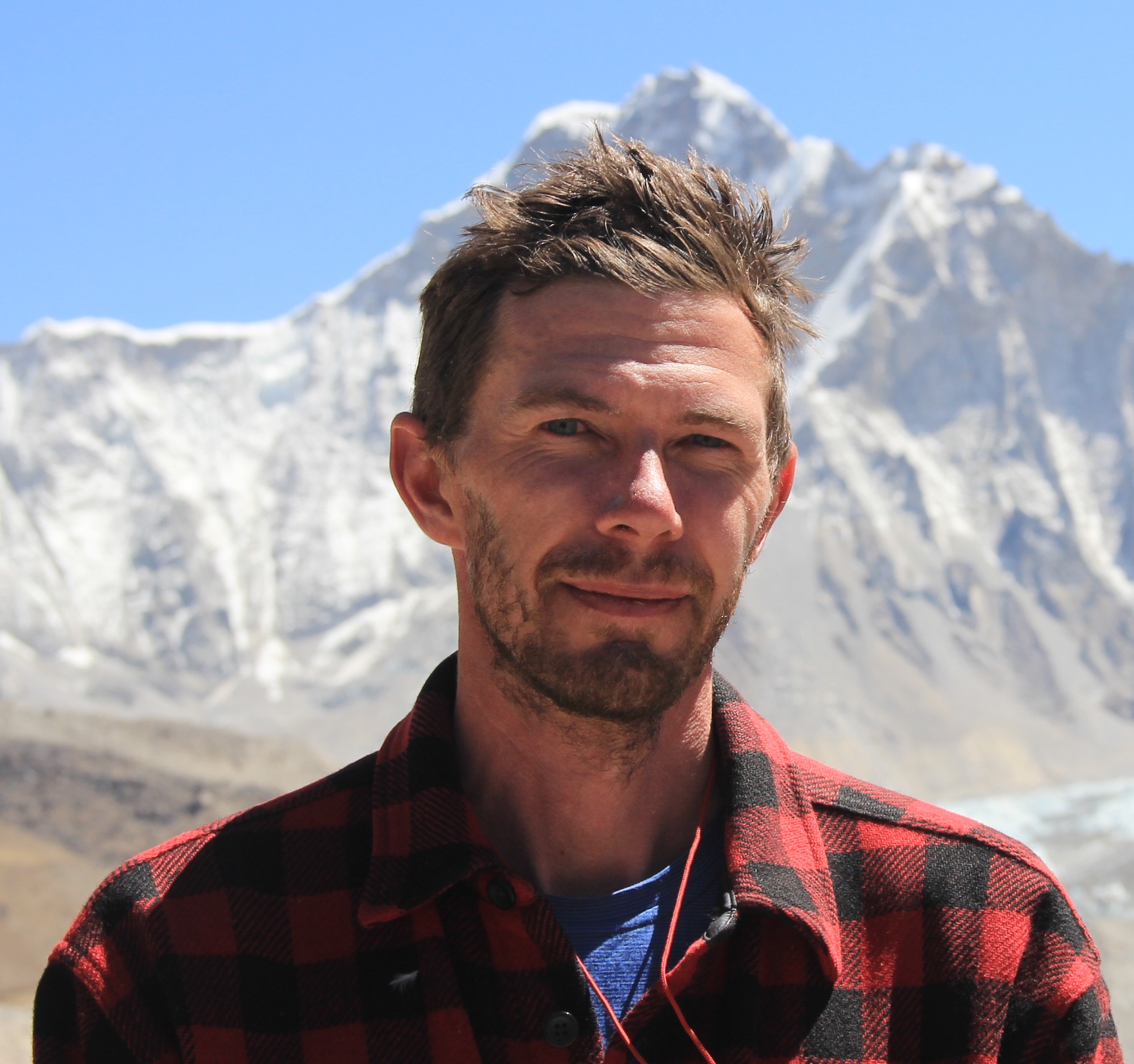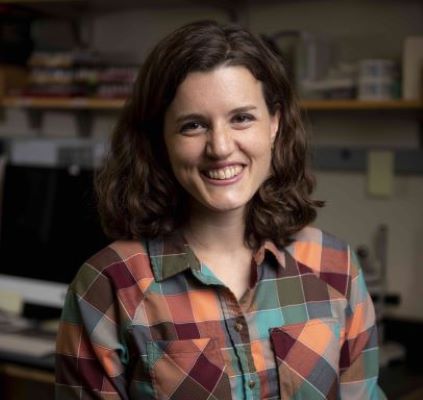People

George Denton
Professor

brenda Hall
Professor
My interests include the origin of ice ages and abrupt climate change and the behavior of ice sheets. Typically, I combine intensive glacial geologic field work with isotopic analyses to obtain chronologies of past glacial and climate fluctuations.
View her Climate Change Institute and Earth and Climate Sciences webpages.
Email: brendah@maine.edu
Office: Bryand Global Sciences Center 311
Phone: 207-581-2191

Aaron putnam
Assistan Professor
I am interested in the late-Quaternary history of glaciers and climate, specifically during and since the last ice age. I use 10Be surface-exposure dating and radiocarbon dating to determine the age of glacial landforms that mark the extents of former glaciers. From this information we can quantify regional changes in past atmospheric temperatures using snowline reconstructions and glaciological modeling. Field areas include: Southern Alps, New Zealand; Patagonian Andes; Rocky Mountains and Sierra Nevada, western USA; Tien Shan and Tarim Basin, Xinjiang, China; Scottish Highlands. Previous field projects have involved fieldwork in northern Maine, northern Alaska, the Canadian Arctic Archipelago, and the southern Transantarctic Mountains, Antarctica.
View his CCI and ERS webpages.
Email: aaron.putnam@maine.edu
Office: Bryand Global Sciences Center 224
Phone: 207-581-2152

gordon bromley
Research Assistant Professor
My research interests include the causes of and mechanisms driving global climate change, as well as the ramifications of anthropogenic forcing for ice-sheet stability, sea level, and water resources. I am also fascinated by relationships between environmental change and human land use, particularly in high-altitude regions of South America. I employ a range of geomorphologic and geochemical techniques in my work, including surface-exposure dating (3He and 10Be), with which I can reconstruct past periods of climate variability. Ultimately, these data provide valuable insight into how our climate system works on timescales ranging from centuries to millennia. Current field areas include Peru, Colombia, Scotland, Antarctica, Greenland, and New England.
View his CCI and ERS webpages.
Email: gordon.r.bromley1@maine.edu
Office: Bryand Global Sciences Center 221
Phone: 207-404-6572

kat allen
Research Associate
I study the causes and consequences of climate change from a marine perspective. The ocean plays a key role in Earth’s climate due to its ability to store and release large amounts of heat and carbon. My research involves reconstructing past seawater properties (e.g., pH, carbonate ion, temperature) from fossil carbonates. Such paleoceanographic records provide insight into past carbon cycling and the driving mechanisms of ice age cycles. I also grow live organisms in culture experiments in order to calibrate new paleo-proxies. My ultimate aims are to understand: 1) how Earth’s climate will respond to rising atmospheric CO2, and 2) how marine organisms and ecosystems will respond to the accompanying ocean acidification.
View her ERS webpage.
Email: brendah@maine.edu
Office: Bryand Global Sciences Center 311
Phone: 207-581-2191

Peter Strand
PhD Candidate
I am a PhD student working under the guidance of Aaron Putnam and George Denton. My research involves reconstructing past glacial chronologies and climate variability using 10Be surface-exposure dating and radiocarbon dating. My current project is a comparison of the timing and structure of the Last Glacial Maximum period in Northern and Southern Hemisphere mid-latitudes. I am also interested in the roles played by changing oceanic and atmospheric circulations in the climate system. Field areas include: Mongolian Altai; Southern Alps, New Zealand; Northern Andes, Peru; Dry Valleys, Antarctica.
Email: peter.strand@maine.eduOffice: Bryand Global Sciences Center 228

trisha Hall Collins
PhD Student
Biographical Statement: I earned my B.A. in geology from The College of Wooster, with a focus on the structural evolution of central Utah. I went on to earn my M.S. in earth sciences at The Ohio State University researching climate-tectonic interactions in McMurdo Sound, Antarctica. After my master’s, I began working as a consulting hydrogeologist and spent several years working for clients in the Midwest and Western US investigating contaminated sites and managing regulatory requirements. I am passionate about the intersection of science and society, and I thoroughly enjoy thinking about complex Earth processes while getting in some fieldwork in beautiful places. I joined the glacial geology group at UMaine to develop my skills in climate science with a keen focus on helping to bridge the gap to relevant climate policy.
Research Statement: My broad interests center on reconstructing past behavior of mountain glaciers using field mapping and surface exposure dating in conjunction with glaciological and Earth System models to better understand impacts of abrupt climate change on mountain water towers, which are sources of critical water supplies.
Email: tricia.hall@maine.edu
Office: Bryand Global Sciences Center 313

scott braddockl
PhD Candidate
I study past and current climate change in Antarctica and Alaska. With the aid of ground-penetrating radar and other methods to collect data, we can better understand how glaciers are reacting to changes in the atmosphere and oceans. Ultimately, with this information we can make better predictions of future changes in the climate and impacts on the planet.
Email: scott.braddock@maine.edu
Office: Sawyer 206B

meghan spoth
PhD Candidate
My research is focused on the glacial lakes of the Falkland Islands off the coast of Patagonia. I am using lake cores to map the climate patterns since the Last Ice Age to broaden the understanding of the climate systems on a global scale.
Email: meghan.spoth@maine.edu
Office: Bryand Global Sciences Center 313

maraina miles
PhD Candidate
I am a PhD candidate in both the School of Earth and Climate Sciences and the Climate Change Institute working with Brenda Hall. We are studying the deglaciation of the Royal Society Range in Antarctica using 10Be dating and radiocarbon dates obtained from fossil algae to reconstruct past ice extent. The end of the last ice age is the focus of our studies, as we wish to further understand the response of ice cover in Antarctica to climatic warming.
Email: maraina.miles@maine.edu
Office: Bryand Global Sciences Center 313

lauren woods
Masters Student
I am a masters student in the School of Earth and Climate Sciences and Climate Change Institute, working with Dr. Aaron Putnam. My research focuses on constructing a 10Be chronology of moraines deposited during the last glacial period at Soda Lake in the western Wind River Range, Wyoming. The main goal of this research is to investigate the bi-hemispheric synchrony of mid-latitude mountain glaciers. I am also collaborating on a project to expand a 10Be chronology of Holocene moraines in the Southern Alps, New Zealand.
Email: lauren.carver@maine.edu
Office: Bryand Global Sciences Center 228

katie westbrook
Masters Student
I am a master’s student interested in millennial scale climate change under the guidance of Aaron Putnam. I work in Lysefjord near Stavanger, Norway where I collect rock samples for surface exposure dating. I am hoping to construct a chronology of the termination of the Last Glacial Maximum. This is in an effort to understand the drivers of ice ages and to assess the global response to these drivers.
Office: Bryand Global Sciences Center 228
Email: katherine.westbrook@maine.edu

zander roman
PhD Student
Biographical Statement: I did my undergraduate career at the University of Maine. In my Junior year I was fortunate enough to get the opportunity to travel to New Zealand to work with George Denton on addressing current problems with our understanding of ice ages and the climate system. I fell in love with the work, the field area, and the questions surrounding the causes for the Last Glacial Maximum. I graduated from the University of Maine in 2021 with a BS in Earth & Climate Sciences and was fortunate enough to earn an NSF fellowship that would enable me to pursue a higher education. I am now currently pursuing a doctorate degree in paleoclimate, working closely with George Denton and Aaron Putnam in our attempt to address the causes for the Last Glacial Maximum and its subsequent deglaciation.
Research Area: I am interested in broadening my understanding of the dynamics and inner workings of our climate system. I am currently working towards this by building a glacial chronology in the Wind River Range in Wyoming, USA and the Southern Alps of New Zealand. A large, detailed chronology will help me begin to address and test our current hypotheses for how our climate functioned in the past, and will better help me understand how our climate might respond moving into the future.
Email: alexander.roman@maine.edu
Office: Bryand Global Sciences Center 228
